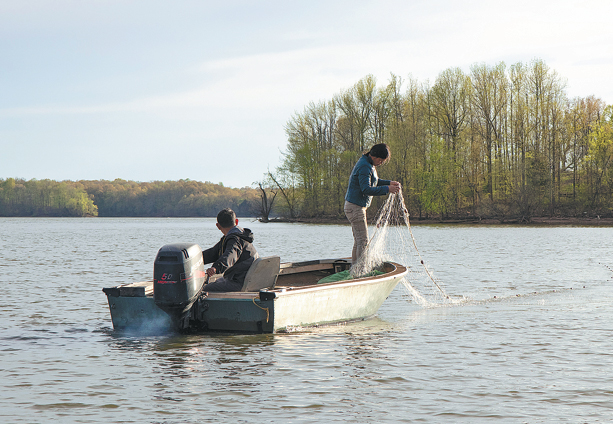The lure of Asian carp: turning a pest into gold


Carp prices are cheap compared to other commercial fish, but the ease of catching large quantities of them makes up for the price difference, and it evens out, they said.
Irwin has already turned down a job in Alaska for the 2019 summer. Catching carp in Kentucky is a much easier life.
"Here the weather is warmer, the environment is more comfortable, and I get to sleep in my own bed at the end of the day," he said, adding that the earnings are comparable to what he would make in Alaska.
Irwin and Berry make decent money catching Asian carp, a fish that is so abundant in rivers and lakes that it has become a serious ecological problem for states like Arkansas, Mississippi, Louisiana, Illinois and Kentucky.
Ron Brooks, fisheries director at Kentucky's Department of Fish and Wildlife Resources, said that the Asian carp are disrupting $1 billion worth of recreational and commercial businesses in western Kentucky alone.
"The Asian carp dominates the bio mass, they create problems for commercial and recreational fishing, boating and water skiing. It puts a lot of new business owners off when they talk to us about opening a business in Kentucky," Brooks said.
In some waterways, carp are so abundant that they jump out of the water into boats, sometimes hitting boaters and creating a nuisance. The massive schools of carp also present hazards to water skiers on popular recreational lakes. Commercial fishermen after other types of fish have to try hard not to catch them.
Asian carp are currently having an negative impact on estimated $7 billion various businesses in the US.
But He Lining, development manager at Two Rivers Fisheries, says Asian carp are not a problem, but an opportunity.
According to He, who is writing a book about Asian carp, the fish was introduced to the US by scientists in the late 1960s and early 1970s as an easy and cheap way to treat waste water.
However, once the Asian carp got into the river and lake systems, they flourished, and decades later, their populations have grown to the degree of creating an ecological disaster, crowding out other fish species competing for the rich food sources in the waterways.
"Asian carp is an important fish. It's an incredible fish and has been domesticated in Asia for more than 2,400 years," He said. "We consume more Asian carp than any other category of fish — Asian carp counts for 10 percent of global seafood consumption. We eat more silver carp than tuna and salmon combined.
"It is a problem here, but it's not garbage; it's a gold mine," He said.
In China, processed Asian carp is a $10 billion business, he said. "If we can save that $7 billion business by creating another $7 billion industry, that will be even better."
And that is exactly what the newly established International Fisheries Industrial Park is trying to do.

































